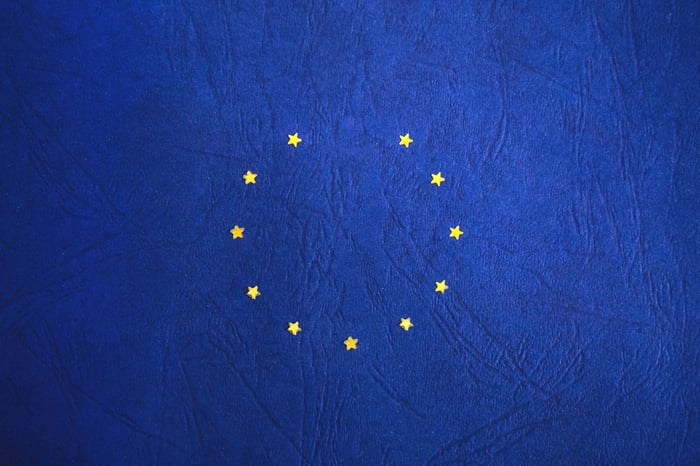Evolution of Royalty Models: Key Drivers in the Film and TV Industry
Advancements in Technology have led to an evolution of royalty models. Find out about the key... Read More

The UK audiovisual industry has long punched above its weight across Europe with the UK being Europe’s biggest producer of film and tv programming and with “British” content popular on screens, both big and small, beyond the Channel. A glorified image of Britain features large in recent international “British” commercial hits. The UK’s top grossing 2021 release, No Time To Die, portrays a slick, cosmopolitan, European image of Britain complete with glamorous stars and locations from our European neighbours. Numbers 2 and 3, The King’s Man and Spencer, showcase quintessentially British institutions and stories, as do hit series such as The Crown and Bridgerton. The immediate aftermath of Brexit and of the isolation brought by the Covid pandemic, where the UK was often portrayed as Europe’s villain, casts doubt on the continued appeal of all things British and the future role of the UK in the European audiovisual landscape.

As with our friends across the Channel, the pandemic has resulted in an explosion of streamer backed content. Rarely a week goes by without news of further advances in the streamers’ might from infrastructure investment in studio space to training initiatives to address the shortage of qualified local production personnel. Independent production now more than ever finds it increasingly challenging to crew up, to cast and to schedule as it competes with the likes of Netflix, Amazon and Disney Plus. Many claim that cinema is dead and traditional independent film finance models have been distorted forever.
Recent box office figures compiled by the UK Cinema Association indicate a positive public response to the return of cinemagoing after months of forced closures and capacity restrictions. This seems to augur well for a continued recovery in 2022 and beyond with a diverse slate of films, blockbuster and independent, on offer. Although it is still too early to assess any permanent impact on viewing habits, the optimism is shared by the Film Distributors’ Association that has welcomed the return of audiences and maintains that cinema remains the nation’s favourite out-of-home entertainment choice.
Certainly, the main disruption due to the pandemic to the traditional business model for independent film financing from institutional lenders in short supply or with many strings attached and with changes to the long-established practice of finance based on film sales and distribution. This has led to an increased reliance on the limited public funds available in the UK from entities such as the British Film Institute and public broadcasters. The UK public subsidy purse is very small in comparison to the generous public or broadcaster subsidies available in most European nations.
With Brexit, the UK lost its access to Creative Europe MEDIA funding. The UK government recently established the UK Global Screen Fund worth about £7m in its first phase of operation to fill part of the gap left in the British independent film sector (yet the amount awarded falls short of the amounts received by the UK in MEDIA funding (£10.9m in 2018, for example)). The fund’s stated aims are to boost independent British screen content (in particular film) and support its international profile. To date, the fund has made a concerted effort to bring together UK and international partners, with 7 of the 9 selected projects in the first phase of awards being UK/European co-productions.

The size of the UK industry means that many EU countries benefit from both British and British-qualifying US productions spending money on shoots in Europe. UK production spend reached £5.64 billion in 2021, 23% more than the £4.37 billion spend in the pre-pandemic year 2019. The UK would argue that supporting growth and collaboration between the UK and the EU works in the best interests of both sides.
The UK tax reliefs available to qualifying UK production companies have played a large part in the growth of production in the UK. EU productions retain the same ability to quality for UK tax incentives as before Brexit as long as they pass the UK’s relevant cultural test or qualify through a co-production treaty and European Economic Area (EEA) personnel continue to qualify for cultural test purposes. However, for the most part, UK productions have lost access to tax incentives in Europe and UK personnel no longer qualify for other European member states’ cultural tests.
Brexit does not affect the UK’s ability to co-produce with the rest of the world. The European Convention on Cinematographic Co-Production, the UK’s gateway to co-production with Europe, is not governed by EU law but by the Council of Europe. The UK recently agreed revisions to the European Convention to add flexibility to UK co-productions with European partners by lowering minimum and raising maximum finance thresholds for bilateral and multilateral co-production.
Crucially UK films and tv programs still count as “European works” towards quotas which currently dictate that a minimum of 30% of content on broadcasters and VOD platforms must be European. The UK is a party to the Council of Europe whose European Convention on Transfrontier Television sets out the definition of “European works”.
There have been rumblings against the disproportionate amount of UK content on European screens and the resulting threat to Europe’s cultural diversity and ability to promote works from smaller European countries or less widely-spoken languages. UK content often relies heavily on the presale of international rights to finance production of big budget UK films and series like The Crown or Downton Abbey. The qualification of British series as European also makes them more valuable for streaming services aiming at satisfying EU quotas. The sale of international rights to European broadcasters and VOD platforms was valued at just below £500 million in 2019-2020 alone, making Europe the second market for UK content behind the USA. A move to define UK content as something other than “European”, likely to be on the agenda at the next review of the EU Audiovisual Media Services Directive in 3 years’ time, would be a blow to British television drama and would complicate the post Brexit UK-EU relationship.

Since Brexit, from 1 January 2021 the trading relationship between the UK and the European Union has been governed by a Trade and Cooperation Agreement (together with the Northern Ireland Protocol) with rules affecting every economic sector from the sale of sausages to audiovisual content. The main legal changes to the new UK/EU relationship in the audiovisual sector are in the areas of mobility, state subsidy (discussed above), data transfers and intellectual property.
The most significant factor for UK/EU cross-border production is mobility: the movement of goods and people, both of which have become more complicated from an administrative perspective. Creative workers from the EU to the UK whether joining a production for temporary work or moving for longer term work in the sector are now subject to a visa or points-based immigration system. The admission of film equipment equipment is possible without additional import restrictions or taxes. In practice, red tape at border controls and delays affecting the general movement of goods do remain of concern. Extra planning and, as we move forward, pragmatic solutions are needed to deal with the reality of the Brexit hassle factor in cross-border production.
The UK’s position in the European audiovisual production landscape is undisputed, for the time being, due to the size of its industry and its links to US production. However, on a political level, the EU may seek to undermine the dominance of British content on its screens if it revisits the “European works” definition. On a cultural level, iconic British brands and institutions may lose some of their appeal to viewers across the Channel. On a practical level, European-wide working relationships that exclude the UK are being forged without any need for troublesome paperwork or administrative hassle. It is difficult to see how the new freedoms promised by the pro-Brexit campaign are being turned into opportunities for the UK in the audiovisual sector.
As the UK forges a post Brexit identity within Europe, a dose of humility may be required to find opportunities on the other side of the Channel. The efforts of the UK Global Screen Fund are a good start, with the UK already involved in more international co-productions than in the latter part of the UK’s involvement with the MEDIA programme. It is hoped that UK producers will actively explore joint production and finance opportunities with European counterparts, emerging from a perceived complacency on the part of the UK towards European co-production. Already, the last years have seen a shift in the well-established Anglo-Saxon reluctance to accept dubbed foreign content on its screens. The British industry still has a role to play in Europe, bringing the best of British talent and creativity to “European” stories that appeal to audiences on both sides of the Channel. The UK will just need to work harder at it.
Advancements in Technology have led to an evolution of royalty models. Find out about the key... Read More

Learn about new licensing models, collaborations with AI companies, and key considerations for... Read More